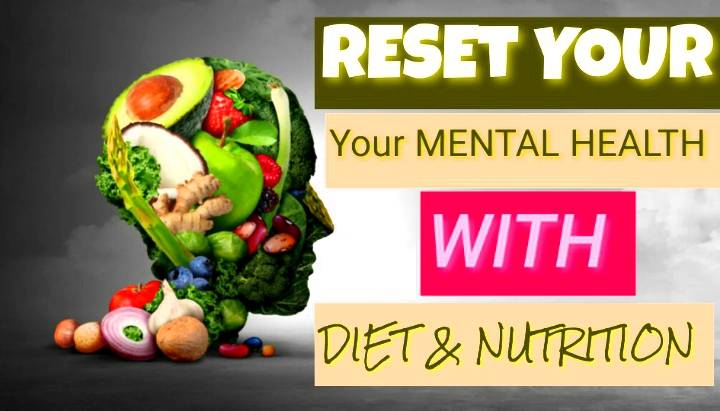Resetting your Mental Health with Diet and Nutrition
Introduction:
Taking care of your mental health is essential, regardless of your age. While various factors influence your well-being, one often overlooked aspect is the role of diet and nutrition. The food you consume can significantly affect your mood, energy levels, and overall mental health. In this article, we will explore how you can nourish your mind by making conscious choices about your diet.
1. Understanding the Gut-Brain Axis:
Did you know that there is a strong connection between your gut and brain? The gut contains a complex network of neurons called the enteric nervous system, often referred to as the "second brain." This intricate connection plays a crucial role in influencing your mood and emotions. By maintaining a balanced diet, you can support a healthy gut and positively impact your mental well-being.
2. Key Nutrients for Optimal Mental Function:
Certain nutrients are vital for optimal brain function. Consider incorporating the following into your diet:
a. Omega-3 fatty acids: Found in fish, nuts, and seeds, these healthy fats support brain health, improve mood, and reduce anxiety.
b. Complex carbohydrates: Found in whole grains, fruits, and vegetables, these carbs provide sustained energy and promote the production of serotonin, a neurotransmitter that regulates mood.
c. Antioxidants: Found in colorful fruits and vegetables, antioxidants protect brain cells from damage caused by free radicals and support overall brain health.
3. The Impact of Sugar and Caffeine:
While it may be tempting to rely on sugary snacks and caffeinated beverages for quick energy boosts, they can have adverse effects on your mental health. Excessive sugar consumption can lead to energy crashes and mood swings. Caffeine, commonly found in coffee and energy drinks, can disrupt sleep patterns and increase anxiety. Opt for healthier alternatives like herbal tea, water, or fresh fruit to maintain natural energy levels.
4. Hydration and Cognitive Clarity:
Dehydration can impair cognitive function and affect your mood. It is crucial to stay adequately hydrated throughout the day. Carry a water bottle with you and aim for at least 8 cups (64 ounces) of water daily. Proper hydration promotes mental clarity, helping you feel more focused and alert.
5. Cultivating Healthy Eating Habits:
Nourishing your mind through diet and nutrition involves adopting healthy eating habits:
a. Regular meals: Avoid skipping meals as it can lead to low blood sugar, negatively impacting your mood and energy levels.
b. Balanced variety: Strive for a well-rounded diet that includes fruits, vegetables, whole grains, lean proteins, and healthy fats.
c. Mindful eating: Practice mindful eating by paying attention to your body's hunger and fullness cues. Eat slowly, savoring each bite.
Conclusion:
Regardless of your age, prioritizing your mental health requires attention to your diet and nutrition. By incorporating brain-boosting foods, staying hydrated, and adopting healthy eating habits, you can nourish your mind and enhance your overall well-being. Remember, even small changes in your dietary choices can have a profound impact on your mental and emotional state. Take charge of your mental health by taking care of your body, and enjoy the benefits of a healthier and more fulfilling life.




No comments yet
Be the first to share your thoughts!